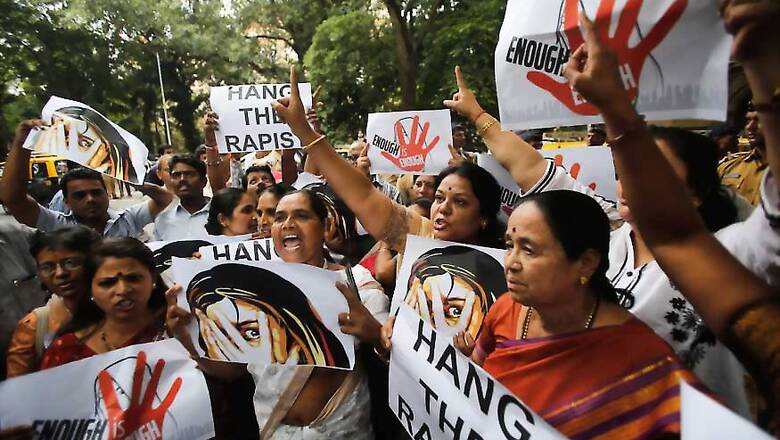
views
New Delhi: “Marital rape in India cannot be criminalized as India has its own unique set of problems like literacy, lack of financial empowerment of the majority of females, mindset of the society, vast diversity, poverty, etc,” reads the affidavit submitted by the Centre in the Delhi High Court.
Centre has also said the country would not be “blindly following the western countries in this regard”.
The affidavit has been filed by Advocate Monika Arora in the court. The issue of criminalising marital rape was seen as a major step towards gender justice after the government’s pro-women stand in instant triple talaq case.
The Centre has submitted that “what constitutes marital rape and what would constitute marital non-rape needs to be defined precisely before a view on its criminalization is taken.”
Further, the government has stated that “If all sexual acts by a man with his own wife will qualify to be marital rape, then the judgment as to whether it is a marital rape or not will singularly rest with the wife.”
The government has said the main problem lies in determining the value of evidence. “The question is what evidence the courts will rely upon in such circumstances as there can be no lasting evidence in case of sexual acts between a man and his own wife,” reads the affidavit.
The government also feels that marital rape might destabilize the institution of marriage. The government has quoted SC verdicts to further bolster their stand.
“It has to been ensured adequately that marital rape does not become a phenomenon which may destabilize the institution of marriage apart from being an easy tool for harassing the husbands. The Supreme Court and various High Courts have already observed the rising misuse of section 498A of IPC,” the Centre submitted.
The government has relied on the Law Commission’s 172nd Report titled Review of Rape Laws and the 167th report by the Department Related Parliamentary Standing Committee on Home Affairs which did not recommend criminalization of marital rape.
However, while citing the Justice J S Verma Committee in its Report titled "Amendments to Criminal Law", the Centre acknowledged the recommendation of the committee to remove the exceptions to marital rape, but also cited that the report stated, "the legal prohibition on marital rape is accompanied by changes in the attitude of the prosecutors, police officers and those in society generally."




















Comments
0 comment